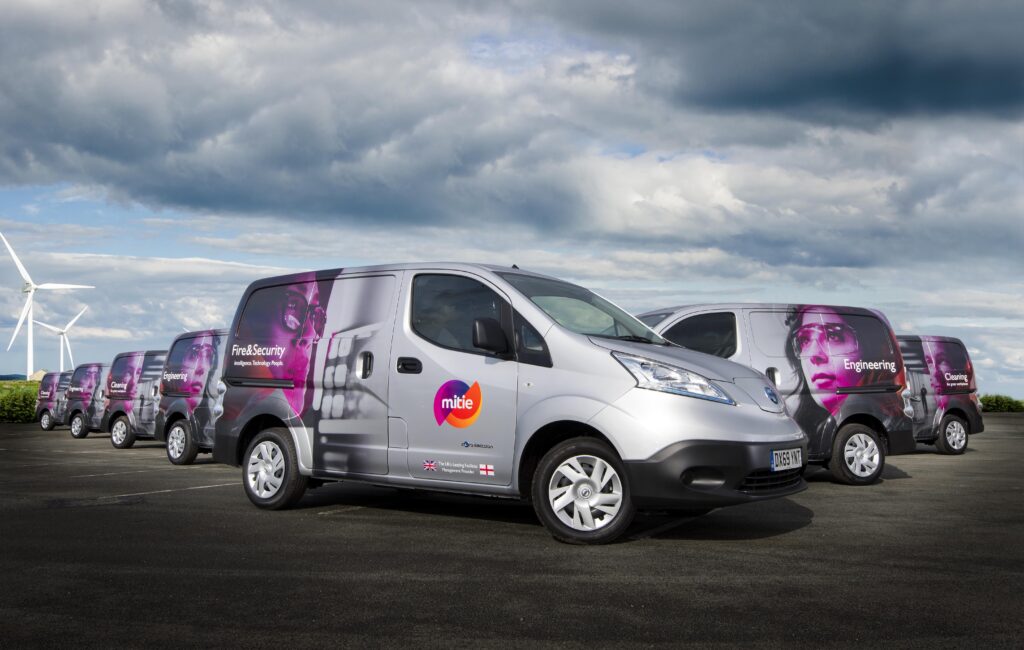COP26 signals the end of the road for the internal combustion engine – and businesses are crucial leaders. Dominic Phinn, senior policy manager of EV100, reflects on the pledges made at the climate conference and how they reinforce the work already underway by EV100 members committing to an electric fleet
After two weeks of intense negotiations, the end of last week saw COP26 draw to a close. Time – and our continued efforts over the coming years – will show whether the results reached in the “Glasgow Climate Pact” were strong enough to achieve the UK presidency’s goal of ‘keeping 1.5C alive’ as the benchmark of global climate ambitions.
Clean transport and specifically electromobility, however, were areas that provide room for optimism, with clear signals that the rapid shift to electric vehicles is recognised as an essential part of reducing emissions as we continue into the Climate Decade.
November 10th was ‘Transport Day’ at COP26, where the UK government announced a landmark road transport declaration backed by over 100 organisations from some of the world’s largest automotive manufacturers, national governments, cities, states, regions, business fleet owners and operators and investors. Signatories have committed to sell only 100 per cent zero emission cars and vans sales by 2035 in leading markets, and no later than 2040 globally.
Taking all commitments together, this vision is now shared across markets representing 2 billion people globally, and by automakers representing one in four cars sold worldwide.
The ambition doesn’t stop at light-duty vehicles, either. In a second Memorandum of Understanding championed by the Dutch government in partnership with Calstart, fifteen international governments, including the UK, Scotland and Wales, committed to 100 per cent zero emission truck and bus sales by 2040, with an interim goal of 30 per cent by 2030.
The growing momentum for zero emission transport
These announcements are important not only for the unprecedented focus they put on clean transport and its essential role in curbing greenhouse gas emissions at a COP, but because they demonstrate the growing momentum for zero emission transport across all stakeholders.
Over the past year, the global RouteZero platform, co-led by the Climate Group and the High-level Champions for Climate Action in partnership with a dozen international partners, has brought together the voices of leaders around the world to show the rapid shift that is already under way.
Businesses leading the way
Within the global transition, fleets have a crucial role to play. Worldwide, they make up around a quarter of vehicles on the roads, but cause about two thirds of road transport emissions. Companies moving to electric vehicles not only eliminate a significant part of their immediate carbon footprint, their leadership also emboldens governments to commit to and deliver on ambitious policies and targets.
The COP26 transport declaration reinforces an existing critical mass of support already demonstrated by EV100 members. Launched in 2017, the international corporate leadership initiative EV100 brings together forward-looking companies who want to see a swift transition to electric vehicles. Member companies commit to transitioning their fleets to electric and installing charging infrastructure at their relevant premises by 2030.
On Transport Day, seven new members joined the group with collective commitments covering 250,000 vehicles, taking the overall count to 120 companies switching over 5.4 million vehicles to electric by 2030.
In addition to sending a strong demand signal to governments, commitments from business make a tangible impact on overall transport emissions. Based on data reported for EV100’s last Progress and Insights Report, commitments from members will translate into 75 million metric tons of saved CO2 emissions by 2030.
Corporate commitments also play a crucial role in creating a strong second-hand market for EVs. It is important to note that about two-thirds of new cars in Europe are initially bought by companies for their fleets – the vehicles bought by businesses today will form the basis for the second-hand market of tomorrow.
It’s crucial to keep building business demand for EVs, as companies have the purchasing power and influence to help move the market and policies towards clean solutions.
The business case for companies to make the switch keeps growing, as the choice of vehicles available continues to expand while upfront costs are falling. Leaseplan’s 2021 Car Cost Index reveals that compact and mid-size EVs are now fully cost competitive with petrol and diesel cars across most European countries, with the total cost of ownership already favouring EVs in most cases in the UK.
Businesses seeking a competitive edge are future-proofing their fleets against regulatory risks by being an early mover in the EV space, but other benefits can be had, too. Companies can enjoy enhanced reputations and brand value by taking responsibility for their environmental impact, and even receive overwhelmingly positive feedback around the superior driving experience of EVs from their employees.
Company Case studies
Facilities management and professional services company Mitie joined EV100 in 2019 and has recently further accelerated its target to switch its over 5,000 vehicles to electric already by 2025. In May this year Mitie already had over 1,700 electric vehicles on the road.
Centrica owns the third largest commercial vehicle fleet in the UK and has equally brought forward the commitment to electrify its 12,500-strong fleet of vehicles from 2030 to 2025. Earlier this year Centrica ordered 2,000 Vauxhall Vivaro-es, adding to the 1,000 already ordered in summer 2020.
Tesco are deploying electric delivery vans on the roads in London as part of its commitment to have 100% electric fleet by 2028, and will be installing EV charging at nearly 600 stores. By May this year, it had already provided more than 500,000 free charges to customers, equivalent to more than 10 million miles of EV motoring.
What’s next
Despite the encouraging progress, more action is needed to ensure that momentum continues to build. The UK has positioned itself at the forefront of the global transition to electric vehicles with a 2030 phase-out date for the sales of new petrol and diesel cars.
To implement this goal, it has recently announced the introduction of a Zero Emission Vehicle Mandate. As a crucial measure to drive year-on-year progress towards the phase out goal, it will provide clarity and confidence to businesses looking to invest in the EV sector, and help ensure that vehicle supply matches the rapidly growing demand.
Additionally, the UK also announced at COP26 that it would end the sale of all new diesel trucks between 2035 and 2040, ensuring that the clean transport transition continues across all vehicle categories.
While this clear ambition is highly welcome, more remains to be done to turn it into reality. Significant barriers remain, for example around the easy accessibility of charging infrastructure and the variety of vehicles available to fleet operators.
In 2019, the Climate Group in partnership with BT Group launched the UK Electric Fleets Coalition (UKEFC), with the goal of highlighting the barriers to mass EV uptake to government. The UKEFC made a series of recommendations that will allow businesses to invest in electric vehicles with greater confidence. Supported by over 30 of the UK’s most prominent brands, the coalition works with government to deliver a comprehensive, reliable and easy-to-access network of charging infrastructure across the country, and bridge the remaining price gaps in the up-front cost for vans and larger commercial electric vehicles.
Road transport accounts for over 17 per cent of global carbon emissions, and EVs must play a crucial role in cutting emissions throughout the rest of the Climate Decade, so that COP26 can be viewed as successful and global warming is limited to 1.5°C.
Transport Day has provided a much-needed demonstration of global vision and leadership for clean transport. Now we need to follow up with equally ambitious implementation.
Image shows EV100 member Mitie
Source: https://greenfleet.net/




